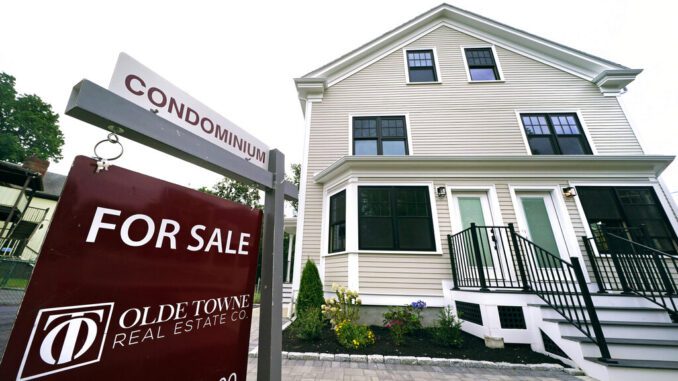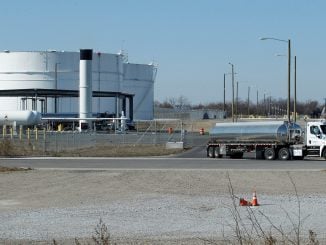
The average long-term U.S. mortgage rate ticked up slightly last week after four weeks of declines, a possible sign of stability that could draw in home shoppers with spring buying season weeks away.
Mortgage buyer Freddie Mac reported Thursday that the average on the benchmark 30-year rate inched up to 6.12% from 6.09%. The average rate a year ago was 3.69%.
The average long-term rate reached a two-decade high of 7.08% in the fall as the Federal Reserve continued to raise its key lending rate in a bid to cool the economy and and bring down stubborn, four-decade high inflation.
At its first meeting of 2023 last week, the Fed raised its benchmark lending rate by a quarter point, its eighth increase in less than a year. That pushed the central bank’s key rate to a range of 4.5% to 4.75%, its highest level in 15 years.
While acknowledging that some measures of inflation have eased, Fed Chair Jerome Powell appeared to suggest last week that he foresees two additional quarter-point rate hikes this year.
Though those rate hikes do impact borrowing rates across the board for businesses and families, rates on 30-year mortgages usually track the moves in the 10-year Treasury yield, which lenders use as a guide to pricing loans. Investors’ expectations for future inflation, global demand for U.S. Treasurys and what the Federal Reserve does with interest rates can also influence the cost of borrowing for a home.
The big rise in mortgage rates during the past year has devastated the housing market, with sales of existing homes falling for 11 straight months to the lowest level in more than a decade. Higher rates can add hundreds of a dollars a month in costs for homebuyers, on top of already high home prices.
The National Association of Realtors reported earlier this month that existing U.S. home sales totaled 5.03 million last year, a 17.8% decline from 2021. That is the weakest year for home sales since 2014 and the biggest annual decline since 2008, during the housing crisis of the late 2000s.
The rate for a 15-year mortgage, popular with those refinancing their homes, rose this week to 5.25% from 5.14% last week. It was 2.93% one year ago.

